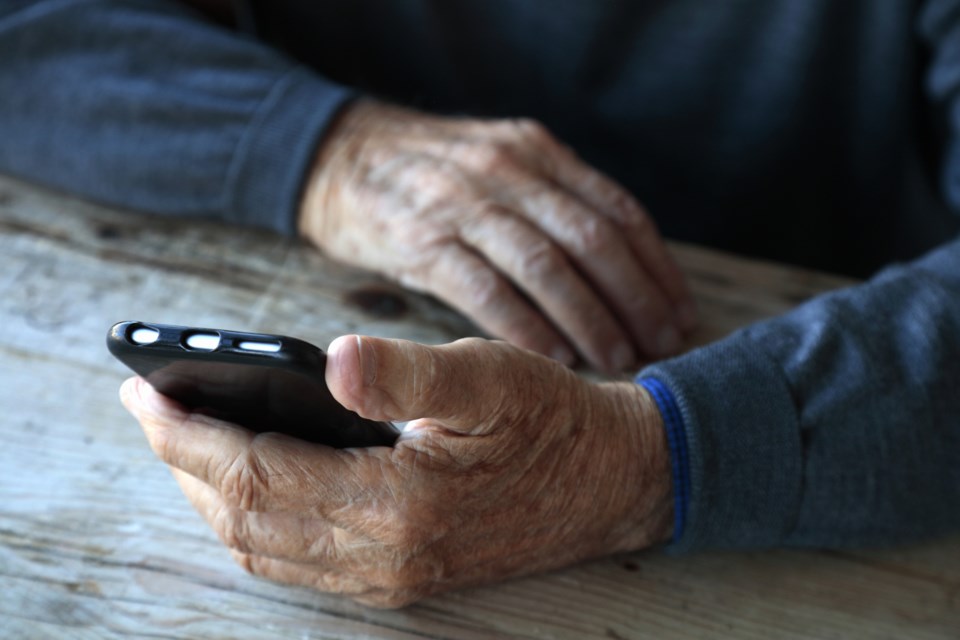Virtual health care was adopted more widely during the COVID-19 pandemic, with many people accessing health-care providers remotely. However, easy and convenient access to technology means some people may choose to bypass health care and consult Dr. Google directly, with online self-diagnosis.
Here is a common scenario: picture someone sitting at home, when suddenly their head starts pounding, their eyes start to itch and their heart rate rises. They reach for their phone or laptop to quickly Google what can possibly be wrong.
It’s possible that the search results could offer accurate answers about the cause of the person’s symptoms. Or the search might erroneously suggest they’re well on their way to an early death.
As a researcher in the virtual care domain, I’m aware that online self-diagnosis has become very common, and that technology has shifted the way health care is delivered.
Paging Dr. Google
Online health information took on a new importance during the pandemic, when using online sources to assess COVID-19 symptoms and self-triage was encouraged. However, the act of self-diagnosis online is not new.
In 2013, it was reported that more than half of Canadians polled said they used Google search to self-diagnose. In 2020, 69 per cent of Canadians used the internet to search for health information, and 25 per cent used online sources to track their fitness or health.
Virtual care and online self-diagnosis share some beneficial traits, such as the convenience of not having to schedule an appointment, saving travel time to the doctor’s office and avoiding waiting rooms. However, the key difference between virtual care and Googling symptoms is that there is no direct communication with a physician when self-diagnosing online.
Some may choose to self-diagnose because they feel it gives them greater control over their health, while others may find it helps them better communicate symptoms to their physician. Some patients may fear misdiagnosis or medical errors.
Over time, people can get better at diagnosing using the internet. Online sources can provide information and support for a specific medical condition. They may also be useful for people with ongoing symptoms who have been unable to get a diagnosis from health-care professionals.
Using the internet to learn more about a condition after being diagnosed by a health-care provider may be useful and may decrease the stress of a diagnosis if the sites consulted are trustworthy.
However, trying to select credible sources and filter out misinformation can be an overwhelming process. Some information found online has little to no credibility. A study focusing on the spread of fake news on social media found that false information travelled faster and wider than the truth.
Risks of self-diagnosis
The risks of using online health resources include increased anxiety and fear. The term cyberchondria can be defined as someone experiencing a high amount of health anxiety from searching symptoms on the internet.
Self-misdiagnosis is also a danger, especially if doing so means not seeking treatment. For example, if a person confidently self-diagnoses their stomach pains as the stomach flu, they may hesitate to believe their doctor’s diagnosis of appendicitis.
There is also a risk of becoming so certain that one’s self-diagnosis is correct that it is difficult to accept a different diagnosis from a health-care professional. Misdiagnoses can even be very serious if it results in failure to detect a possible heart attack, stroke, seizure or tumour.
Further risks may include increased stress on both the patient and doctors, ineffectively taking or mixing medications and increased costs for treatments or medicines that may not be necessary.
Social media and mental health
Social media has given people a voice to share personal health-related remedies and stories. The number of active social media users in Canada has increased by 1.1 million since 2021. This raises the question of how people may be influenced by what they see online and if it may affect health choices.
In 2018, a Canadian internet use survey examined reports of the negative effects of using social media. It revealed over 12 per cent of users reported feeling anxious or depressed, frustrated or angry, or envious of the lives of others.
Conversely, social networks have also enabled people with mental health problems to feel unity by sharing experiences and support. However, this may also have contributed to self-diagnosis (and potentially self-misdiagnosis) of mental health issues, such as anxiety and personality disorders. This can put people at physical and mental risk if it results in inappropriate treatments.
The reality is that online self-diagnosis cannot be prevented. But those consulting Dr. Google should be aware of the potential risks, confirm information found online with a health-care provider and ask health-care providers for credible online sources of information about their diagnoses.
![]()
Taleen Lara Ashekian does not work for, consult, own shares in or receive funding from any company or organization that would benefit from this article, and has disclosed no relevant affiliations beyond their academic appointment.




